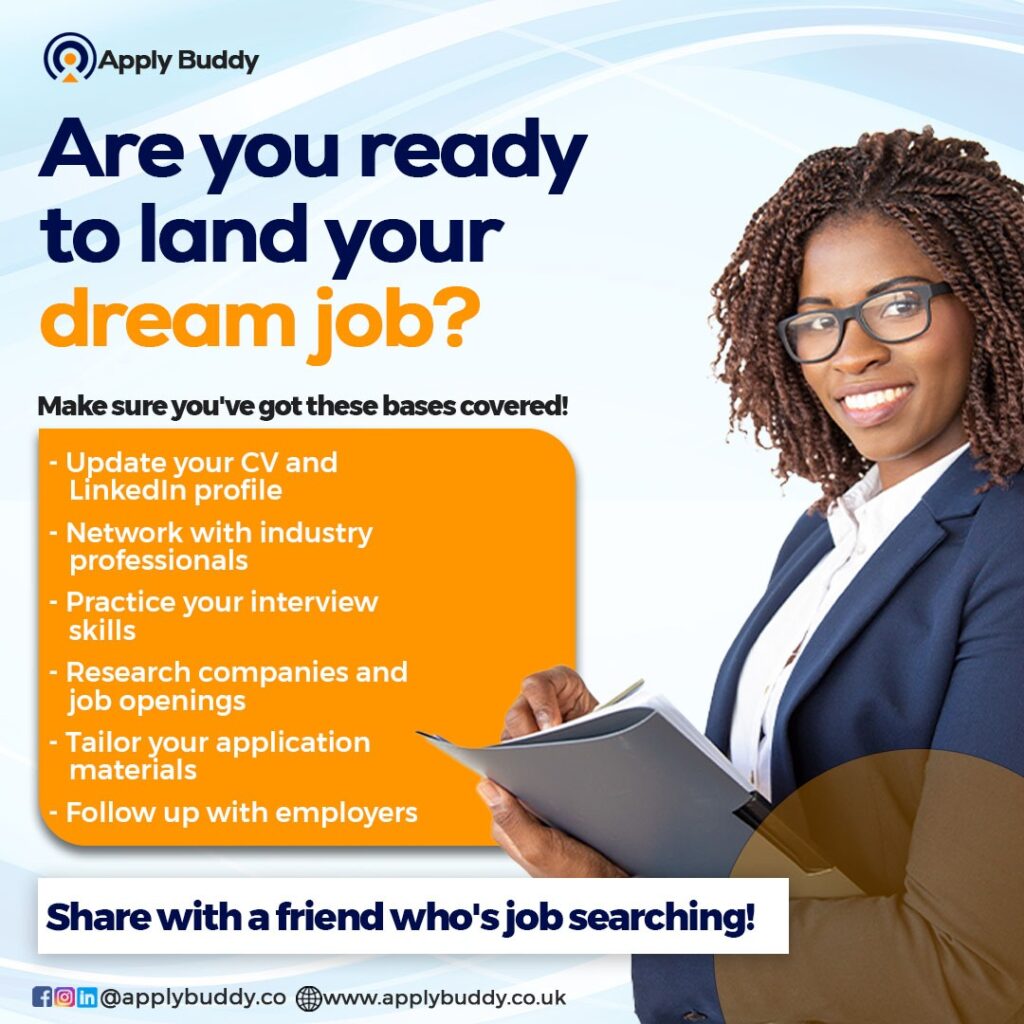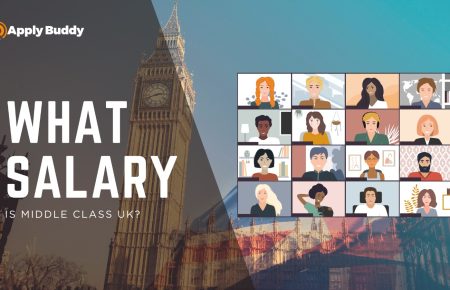Job market realities can make getting hired faster seem challenging, but with the right approach, it is not impossible. Most people want their job hunt to end as soon as possible. Which might result in an unstructured approach to the job hunt. This unstructured approach to obtaining a job might have unfavourable effects.
Hurrying through the application process to submit as many as possible frequently results in errors and bad choices. There are certain situations in which professionals may need to quicken the job search process. Consider making strategic, well-planned moves for quicker results.
Understanding the landscape, optimising CVs and cover letters, leveraging professional networks, utilising job search platforms, and preparing thoroughly for interviews will significantly enhance the chances of getting hired faster.
This article will explore the strategic steps to streamline the job search process and increase the chances of getting hired faster.

Understanding the Job Market
The job market is dynamic and constantly influenced by economic trends, technological advancements, and industry-specific demands. To get hired faster, staying informed about these changes is crucial.
Recognising sectors with high growth potential, understanding the skills in demand, and being aware of the latest hiring practices can give a competitive edge.
Economic trends play a significant role in the job market. For instance, during economic downturns, industries like healthcare, technology, and essential services often continue to hire, whereas others may slow down.
Staying updated with these trends helps streamline the job search effectively. Additionally, understanding the skills currently in demand, such as digital literacy, data analysis, and project management, can guide professional development efforts and present your expertise in a valuable light.
Types of Industries And Roles With High Hiring Rates
Certain industries consistently demonstrate high hiring rates due to their rapid growth and essential nature. Technology, healthcare, e-commerce, and renewable energy are prime examples.
- Technology: This rapidly evolving sector demands professionals skilled in software development, cybersecurity, and artificial intelligence. Key roles include Software Developers, Cybersecurity Analysts, Data Scientists, and AI Specialists.
- Healthcare: As a critical industry, healthcare consistently requires a steady influx of skilled professionals. In-demand roles include Nurses, Medical Technicians, Health Services Managers, and Physicians.
- E-commerce: With the surge in online shopping, e-commerce has seen logistics and customer service roles rise. Essential positions include Logistics Coordinators, Customer Service Representatives, E-commerce Managers, and Digital Marketers.
- Renewable Energy: This growing field focuses on sustainable practices and technologies. Key roles include Renewable Energy Engineers, Project Managers, Environmental Scientists, and Solar Panel Technicians.
By focusing job search efforts on these industries and roles, there’s an increase in the chances of landing a position more quickly. Tailoring CVs and cover letters with relevant skills and experiences in these high-demand areas can further boost overall appeal to potential employers.

Optimising Your Resume and Cover Letter
Resumes and cover letters are the first chance to make a strong impression. To get hired faster, these documents must be clear, concise, and tailored to each job application. Highlight the most relevant experiences and skills, and quantify professional achievements where possible.
Start with a compelling summary that captures a unique professional identity and career goals. Follow this with a detailed work history, emphasising accomplishments with concrete examples. For instance, instead of stating “managed a team,” say “led a team of 10, increasing project completion rate by 20%.”
Cover letters should complement resumes and provide context to career experiences. Explain your interest in the role with valuable background experiences. Address the specific needs of the employer and show enthusiasm for the position.
Using keywords from the job description in resumes and cover letters can ease applications through Applicant Tracking Systems (ATS), which many companies use to screen candidates. This optimisation ensures that job applications are noticed in the initial stages.
Leveraging Your Network
Networking remains one of the most effective strategies to get hired faster. Many job opportunities are filled through referrals before they are even advertised. Building and maintaining professional relationships can open doors to these hidden opportunities.
Attend industry events, join professional associations, and engage with peers on platforms like LinkedIn. Don’t hesitate to contact former colleagues, mentors, and acquaintances to inform them of your job search. A personal recommendation can significantly increase the chances of securing an interview.
Networking also provides valuable insights and advice from those working within the target industry. They can offer guidance on the hiring process, company culture, and necessary skills, facilitating better preparation and results.
Utilising Job Search Platforms
Job search platforms have revolutionised the way candidates and employers connect. To get hired faster, it’s essential to use these platforms effectively. Popular job search sites like LinkedIn, Indeed, Glassdoor, and specialised industry job boards can significantly expand reach.
LinkedIn is a powerful tool for professional networking and job searching. Keep profile information current, showcase skills and accomplishments, and actively engage with content related to the target industry.
Indeed offers a vast database of job listings and allows job alert notifications based on preferences. Glassdoor lists jobs and provides company reviews and salary information, enabling informed decisions.
Specialised job boards cater to specific industries, such as Dice for technology jobs or Mediabistro for media and communication roles. Utilising these platforms streamlines the job search as employers are actively looking for candidates with relevant backgrounds.
Tips For Setting Up Alerts And Applying Effectively
Setting up job alerts can save time and ensure new opportunities are not missed. Most job search platforms allow alert creation based on specific keywords, locations, and job titles.
- Customise Alerts: Set up job alerts tailored to specific interests and qualifications. Use relevant keywords, job titles, and preferred locations to receive the most pertinent opportunities.
- Frequency and Timing: Choose how often you want to receive alerts. Daily notifications keep you updated on new postings, while weekly summaries might suit less urgent searches.
- Use Multiple Platforms: Diversify the job search by setting up alerts on several job search platforms like LinkedIn, Indeed, and Glassdoor. This increases the overall chances of finding suitable opportunities.
- Refine Search Criteria: Adjust the search criteria periodically based on the results received. Narrowing or broadening the criteria will help find more relevant job listings.
- Act Promptly: Apply as soon as an alert is received. Early applications can increase your chances of being noticed by employers.
- Tailor Applications: Customise your resume and cover letter for each job application, highlighting relevant skills and experiences that match the job description.
- Follow-up: After applying, follow up with a polite email to express continued interest and inquire about the status of your application.
Proactively following up after applying can also set you apart. A polite email to the hiring manager expressing continued interest and inquiring about the status of the application shows enthusiasm and initiative.

Boost your job search with Apply Buddy!
Stay ahead with real-time job updates and tailored application assistance.
Optimise your resume, set up job alerts, and apply effectively to top positions.
Get hired faster with Apply Buddy – your trusted partner in landing your dream job!
Preparing for Interviews
Securing an interview is a significant step towards getting hired faster, but thorough preparation is essential. Understanding the company’s history, mission, and values allows for properly aligning responses with the organisational culture, demonstrating genuine interest and fit.
- Research the Company: Understand the company’s history, mission, values, and culture. Familiarise with recent news, key products, services, and industry positions. This knowledge facilitates a proper structure to answers to showcase genuine interest.
- Understand the Role: Study the job description thoroughly. Identify the key responsibilities and required skills. Prepare to discuss how professional experiences and qualifications align with the role, using specific examples.
- Practice Common Questions: Prepare answers for common interview questions such as strengths, weaknesses, and career aspirations. Use the STAR method (Situation, Task, Action, Result) to structure responses to behavioural questions.
- Prepare Questions: Develop thoughtful questions to ask the interviewer about the company’s goals, team dynamics, and success metrics. This demonstrates genuine interest and helps you assess the company’s suitability.
- Dress Appropriately: Choose professional attire that matches the company’s culture. When in doubt, err on the side of formality.
- Bring Necessary Documents: Carry multiple copies of your CV and cover letter, a list of references, and other relevant documents. This shows adequate organisation and preparation.
- Plan The Journey: Ensure you know the interview location and how to get there. Arrive at least 10-15 minutes early to account for any unforeseen delays.
Thorough preparation not only boosts your confidence but also significantly increases your chances of success in the interview.
Research on Companies and Roles
Before any interview, research the company extensively. Understand their mission, values, products or services, and recent news. This knowledge allows tailored answers aligned with the company’s goals and demonstrates genuine interest in the role.
Learn about the specific role by reviewing the job description and any available information on the team or department. Identify the required skills and experiences and prepare examples from past work showcasing these qualifications.
Practice common interview questions and develop thoughtful answers. Questions about your strengths, weaknesses, and past experiences will likely arise. Use the STAR method (Situation, Task, Action, Result) to structure responses and provide clear and concise examples.
Additionally, prepare questions to ask the interviewer. Inquiring about the company’s culture, expectations for the role, and opportunities for growth shows that you are considering the position’s long-term fit.
Conclusion
A strategic and informed approach to your job search is essential to get hired faster. Understanding the job market, targeting high-demand industries and roles, optimising your resume and cover letter, leveraging your network, and utilising job search platforms effectively can significantly enhance your chances.
Thorough interview preparation, including researching companies and roles, further ensures you present yourself as a compelling candidate. With dedication and the right strategies, you can navigate the job market successfully and secure your desired position more swiftly.
FAQs: Get Hired Faster
1. How can you make your resume stand out to employers?
To make your resume stand out, tailor it to each job, highlighting relevant skills and achievements. Use clear, concise language, and quantify your accomplishments. Incorporate keywords from the job description to pass through ATS. A compelling summary and a professional, clean layout also enhance its appeal.
2. What strategies can you use to expand your professional network?
To expand your professional network, attend industry events and join professional associations. Actively engage on LinkedIn by connecting with peers and participating in discussions. Reach out to former colleagues and mentors. Volunteering and attending workshops also provide valuable networking opportunities, fostering meaningful connections within your field.
3. How can you improve your chances of getting a response after applying for a job?
Improve your chances of getting a response by tailoring your resume and cover letter to each job, using keywords from the job description. Follow up with a polite email to the hiring manager, expressing continued interest and inquiring about your application status. Ensure all application instructions are meticulously followed.
4. What are some effective ways to prepare for a job interview?
Effective ways to prepare for a job interview include researching the company, understanding the role, and aligning your skills with their needs. Practice common interview questions using the STAR method, and prepare thoughtful questions for the interviewer. Dress appropriately, and ensure you’re familiar with the interview logistics.





